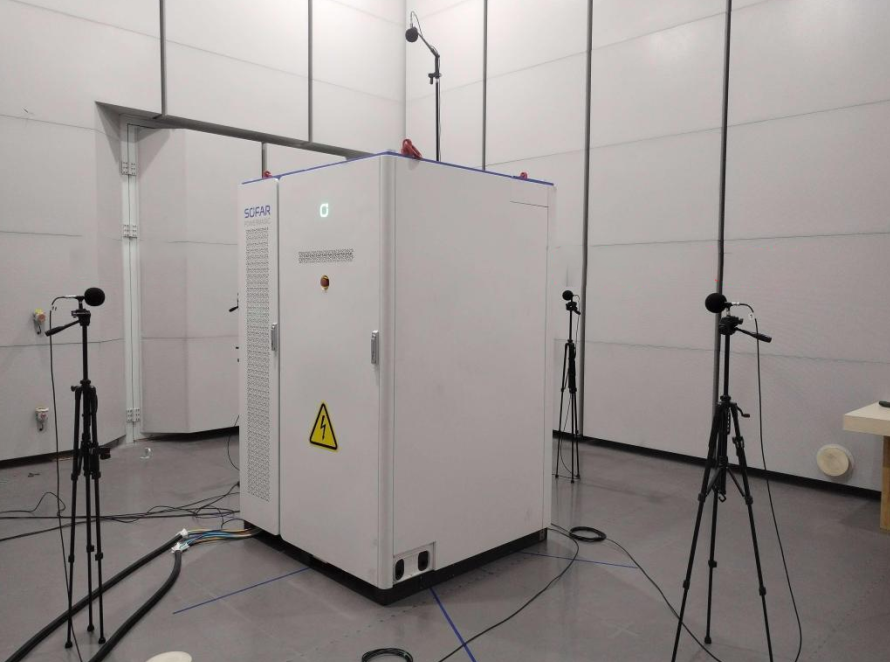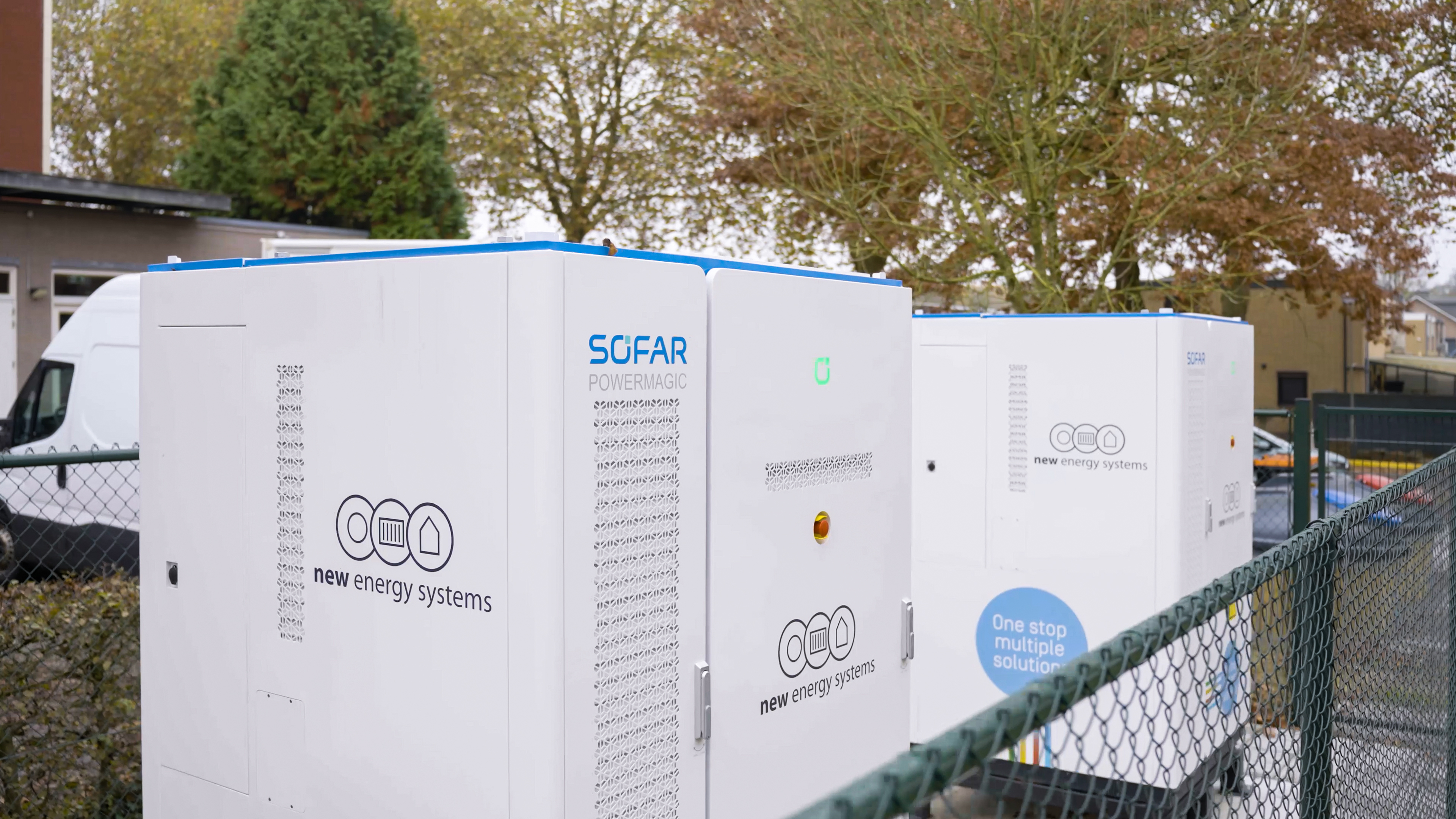<60dB | SOFAR PowerMagic: Unleashing Silent Power for a Sustainable Future
In recent years, the widening peak-valley price differences across various regions in Europe, coupled with the steady improvement in the internal rates of return, have contributed to the rapid development of commercial and industrial energy storage. Additionally, driven by subsidies under various European countries' supportive policies, the demand for energy storage installations in Europe has surged. According to BloombergNEF’s global energy storage industry demand forecast, global new energy storage installations in 2024 are expected to reach 69 GW / 169 GWh, marking a year-on-year increase of 76%. However, with more energy storage stations being constructed in proximity to commercial and residential areas, the electromagnetic and mechanical noise generated by these systems has become a significant concern, both for industry development and local communities.
European regulations on environmental noise emissions, such as the EU Directive 2002/49/EC on the assessment and management of environmental noise, set specific noise limits in different environments:
Residential areas: Daytime noise should not exceed 55 decibels, and nighttime noise should be below 45 decibels.
Mixed areas (residential, commercial, and industrial): Daytime noise should not exceed 65 decibels, and nighttime noise should be below 55 decibels.
Industrial areas: Noise levels during the day may reach up to 70 decibels, with nighttime levels not exceeding 60 decibels.
However, most commercial and industrial energy storage equipment currently on the market generates noise levels around 75 decibels during operation, which often exceeds these European standards, particularly in mixed-use or residential areas.
In response to growing concerns about noise, several European countries have implemented stricter noise regulations for energy storage projects, particularly in residential and mixed-use areas. For example, Germany's TA Lärm (Technical Instructions on Noise Protection) stipulates that in industrial zones near residential areas, noise levels should not exceed 65 dB(A) during the day and 55 dB(A) at night to protect local residents. Furthermore, according to media reports, a 49.9 MW battery energy storage system near Kintore, Scotland, faced public opposition, with noise disturbance being one of the concerns raised by local residents who expressed objections to the potential impact. As a result, reducing noise generated by energy storage equipment has become a critical consideration for developers, utility companies, and operators of energy storage systems. The industry is increasingly focused on innovating solutions that meet both regulatory requirements and public concerns, making noise reduction technology a top priority in the development of energy storage systems across Europe.
As a leading energy storage system supplier, SOFAR’s PowerMagic commercial and industrial energy storage system not only guarantees high efficiency, safety, and stability but also focuses on reducing noise and environmental impact. By optimizing the equipment design, enhancing system air temperature management, and adjusting noise source components in real-time, SOFAR ensures reliable operation while minimizing the operational noise of energy storage equipment. Currently, SOFAR’s PowerMagic systems have undergone testing by authoritative industry institutions, and results show that under environmental temperatures below 35°C, the noise generated by PowerMagic storage cabinets is below 60 decibels, significantly surpassing the industry average and meeting European environmental noise regulations for mixed-use, residential, and industrial areas.

SOFAR's PowerMagic under Sound Pressure Level Test
Since its launch in 2023, SOFAR’s PowerMagic commercial and industrial energy storage system has been well received in both domestic and international markets for its high efficiency, flexibility, lower LCOS (Levelized Cost of Storage), and unmatched safety features. It has been deployed in numerous energy storage projects across Europe, Asia, the Americas, and the Middle East. The system’s optimized ultra-silent and environmentally friendly performance has also expanded its vertical applications.
In commercial complexes, such as shopping malls, hotels, and entertainment venues, energy demands are complex and varied. The PowerMagic storage system can be flexibly configured according to the specific electricity usage characteristics of these commercial spaces, enabling efficient energy scheduling and management. Notably, PowerMagic’s “Silent Start Energy Storage” feature helps mitigate noise disruptions in busy commercial environments, creating a safer and quieter electrical environment for users, thereby enhancing the customer experience in shopping, entertainment, and leisure.
In industrial parks, including environmentally friendly factories and cold chain enterprises, noise levels must be carefully managed to avoid negatively impacting employees’ health and the surrounding community. In these areas, factory noise is typically limited to 85 dB(A) for worker safety, according to EU Directive 2003/10/EC, while ambient noise in nearby residential areas is generally capped at 65 dB(A), in line with EU Directive 2002/49/EC. The PowerMagic system operates at noise levels below 60 decibels, perfectly meeting these environmental requirements. Moreover, its lower LCOS and high efficiency offer significant economic benefits, enabling park owners to take advantage of peak-valley arbitrage to reduce energy costs while supporting sustainable industrial operations.
Additionally, in sensitive public service areas such as elderly care homes and electric vehicle charging stations, noise control is crucial to ensure a stable, safe, and quiet environment. In elderly care institutions, for example, the noise level in residential areas is particularly critical, as disturbances can negatively affect the health and well-being of elderly residents. Similarly, EV charging stations are often located near residential areas, where noise regulations must be strictly adhered to. The PowerMagic storage system’s operating noise below 60 decibels ensures minimal disruption to these sensitive environments, fully meeting the specific requirements of public service facilities. The system also features a “3+2” safety protection system, which includes cell-level gas fire prevention, cabin-level fire protection, water protection, and explosion-proof features, ensuring both quiet operation and optimal safety.

SOFAR and their distributor New Energy Systems provided a powerful solution for a residential care complex in the Netherlands with two PowerMagic C&l Energy Storage systems
At present, the energy storage industry lacks established professional standards and regulations for noise assessment. The sector also lacks comprehensive experience and applicable regulations. Nevertheless, continuously optimizing noise reduction technologies for energy storage systems and improving their adaptability to real-world applications across various scenarios, station scales, and environments is a crucial direction for the industry’s future development.
Although noise standards in the energy storage industry are still evolving, investing in low-noise solutions now is a forward-thinking strategy. Whether considering long-term economic benefits or the importance of a quieter, more sustainable environment, SOFAR’s PowerMagic stands out as a proven and dependable choice. With its advanced noise-reduction technology, PowerMagic not only meets the immediate needs of today’s market but also positions businesses for a future where environmental concerns and operational efficiency go hand in hand.


 Residential Solutions
Residential Solutions  C&I Solutions
C&I Solutions  Utility-Scale Solutions
Utility-Scale Solutions  Highlight Products
Highlight Products Residential PV+ESS
Residential PV+ESS C&I PV
C&I PV Utility ESS
Utility ESS  EV Charger
EV Charger Smart Monitoring Devices
Smart Monitoring Devices After-sale Service
After-sale Service FAQ
FAQ Download Center
Download Center Installation Guide
Installation Guide About SOFAR
About SOFAR Join Us
Join Us








